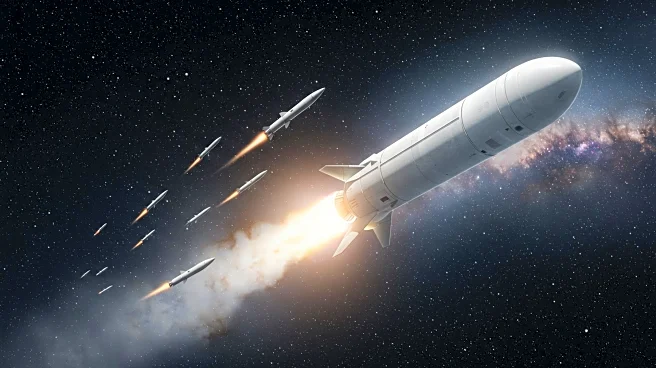What is the story about?
What's Happening?
SpaceX's CRS-33 mission is setting new benchmarks in orbital maneuvers through the use of reusable rockets. This strategic approach offers significant advantages in global space leadership, allowing for more frequent and reliable launches. The mastery of rocket reusability is crucial for maintaining a consistent presence in space, supporting permanent structures like the International Space Station (ISS), and planning future missions to the Moon and Mars. The technological advancements in reusability promise to reduce costs and facilitate seamless operations for space missions, playing a pivotal role in international space competition and diplomacy.
Why It's Important?
The development of reusable rocket technology by SpaceX is reshaping the landscape of international space exploration. By reducing costs and increasing launch frequency, reusable rockets enhance the ability of nations and private companies to conduct continuous research and maintain a presence in space. This capability is vital for supporting long-term projects such as the ISS and future lunar and Martian missions. As reusable technology becomes more widespread, it may diminish the strategic importance of traditional expendable launch systems, potentially altering global alliances and partnerships in space exploration.
What's Next?
As reusable rocket technology continues to evolve, it is expected to influence future space missions and international collaborations. Countries and private entities may increasingly adopt this technology, leading to more competitive and cost-effective space exploration. The shift towards reusability could prompt changes in diplomatic relations and strategic partnerships, as nations seek to leverage these advancements for their space programs.
Beyond the Headlines
The widespread adoption of reusable rockets could have long-term implications for space diplomacy and international relations. As countries and companies invest in this technology, it may lead to new alliances and collaborations, reshaping the geopolitical landscape of space exploration. Additionally, the environmental impact of reduced space debris from reusable systems could become a significant consideration in future space policies.
















